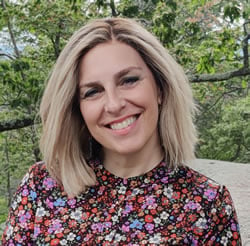Thursday, November 6th, 2008, 4:00PM
My ride arrives to take me from Amsterdam to Den Haag, or The Hague, in Holland, where I will be speaking this evening. I am travelling home with the Katzman children, who leave their home in Den Haag daily at 7:00AM in order to attend the Jewish school in Amsterdam, and often don't arrive home, like tonight, due to traffic, until after 6:00PM. The car ride is supposed to be only forty-five minutes, but the heavy traffic delays us from reaching the home of Shmuel and Sara Katzman.
8:00PM
The audience tonight of both men and women is smaller in quantity than last night's but just as rich in quality! The lecture is titled, "A Soul on Fire," and is about Shabbat as well as the power of the Shabbat candles.
In truth, I feel as though it is these souls—so far away from a large Jewish community, so removed from the life that I've grown up with and take for granted—who are truly on fire. They each listen so attentively and are so inspired by any and every words or thoughts of Torah.
The lecture officially finishes after an hour, but they beg me to keep talking for several hours, wanting more and more inspiration, just as a thirsty man craves water in the desert. "My soul thirsts for you," says the Psalmist—and here in Den Haag, I see it in reality.
Friday, November 7th, 9:00AM
Over breakfast, I learn from Sara Katzman that her husband, originally from New York, now juggles the responsibility of being the rabbi of the two synagogues in Den Haag. Before the war, this was a thriving Jewish community.
Rabbi Katzman teaches me, as well, something very special and personal about my own family history. My own grandfather, Rabbi Dov Yehudah Schochet, served as the chief rabbi here for five years, after leaving Switzerland and before immigrating with my father's family to Canada.
I am shown a book with a picture of my grandfather, walking down these very streets with other community rabbis and delegates.
I am humored by Rabbi Katzman's story of my grandfather's interview by the community members for the position of rabbi. Apparently, my grandfather was asked if he had any children, to which he responded, "nein." The community members, assuming that he had meant, "no, none," then rented for him a one-bedroom apartment, adequate for him and his wife. Upon his arrival to Den Haag and seeing these modest accommodations, my grandfather asked, where he was to put up his family—all nine of his children?!
Amazingly, Rabbi Katzman shows me a letter sent by the Sixth Lubavitcher Rebbe, Rabbi Yosef Yitzchak Schneerson, to my grandfather, dated the ninth of Adar, 1949. In it, the Rebbe addresses my grandfather in his capacity as communal rabbi and asks him to do whatever is in his power to save the children—children who were left in nunneries during the war in order to save their lives—who still remained there after the war.
Chillingly, the Previous Rebbe writes: For every day that these children are not found, saved and placed in Jewish homes and environments, their parents in the After-world are in tremendous pain. Please do whatever is in your power to save these children!
My hand trembles as I read the content of this heart wrenching letter.
And now, his own granddaughter has returned to Den Haag, to do her small little part to ignite and inspire these children's children...







